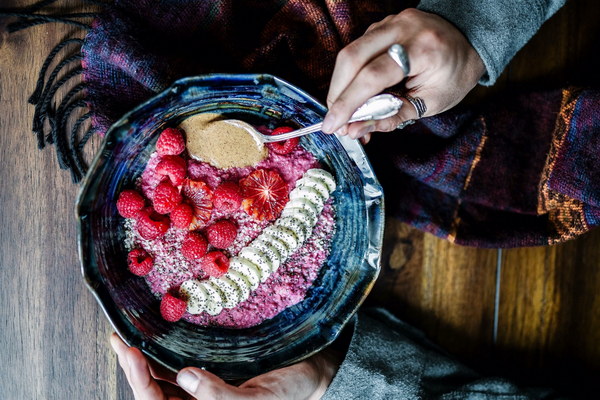Redness in the Face Nurturing Your Health for a Rosy Glow
Introduction:
Do you often find your face turning red? Redness in the face can be caused by a variety of factors, including stress, allergies, and underlying health issues. While a rosy glow might be desirable for some, persistent redness can be uncomfortable and even embarrassing. In this article, we will explore the reasons behind redness in the face and provide practical tips on how to nurture your health for a healthier, more balanced complexion.
Understanding the Causes of Redness:
1. Rosacea: This chronic skin condition causes redness, flushing, and visible blood vessels in the face. It can be triggered by factors such as sun exposure, alcohol, and spicy foods.
2. Allergies: Allergies to certain substances, such as pollen, dust, or pet dander, can cause facial redness and itching.
3. Sunburn: Overexposure to the sun can lead to redness and inflammation in the skin.
4. Heat and humidity: High temperatures and humidity can cause your blood vessels to dilate, leading to redness.
5. Emotional stress: Stress can trigger a release of adrenaline, which can cause blood vessels to dilate and lead to redness.
Nurturing Your Health for a Rosy Glow:
1. Maintain a healthy lifestyle:
- Eat a balanced diet rich in fruits, vegetables, and whole grains to support your skin's health.
- Stay hydrated by drinking plenty of water throughout the day.
- Regular exercise improves blood circulation and helps reduce stress.
2. Protect your skin:
- Use sunscreen with an SPF of 30 or higher, even on cloudy days, to protect your skin from the sun's harmful rays.
- Apply a moisturizer with antioxidants, such as vitamin C, to help soothe and protect your skin.
- Use a gentle cleanser to avoid over-stripping your skin's natural oils.
3. Manage stress:
- Practice relaxation techniques, such as deep breathing, meditation, or yoga, to help reduce stress levels.
- Get enough sleep to allow your body to recover and rejuvenate.
4. Identify and avoid triggers:
- Keep a diary to track potential triggers for your redness, such as certain foods, drinks, or environmental factors.
- Consult with a healthcare professional to identify and manage underlying health issues, such as rosacea or allergies.
5. Use skincare products specifically formulated for sensitive skin:

- Choose products that are fragrance-free, hypoallergenic, and non-comedogenic to avoid exacerbating redness.
- Opt for soothing ingredients, such as aloe vera, chamomile, or green tea, to calm the skin.
Conclusion:
Redness in the face can be a sign of various underlying factors. By adopting a healthy lifestyle, protecting your skin, managing stress, and identifying and avoiding triggers, you can nurture your health for a more balanced and rosy complexion. Remember to consult with a healthcare professional if your redness persists or worsens, as they can provide further guidance and treatment options tailored to your specific needs.









